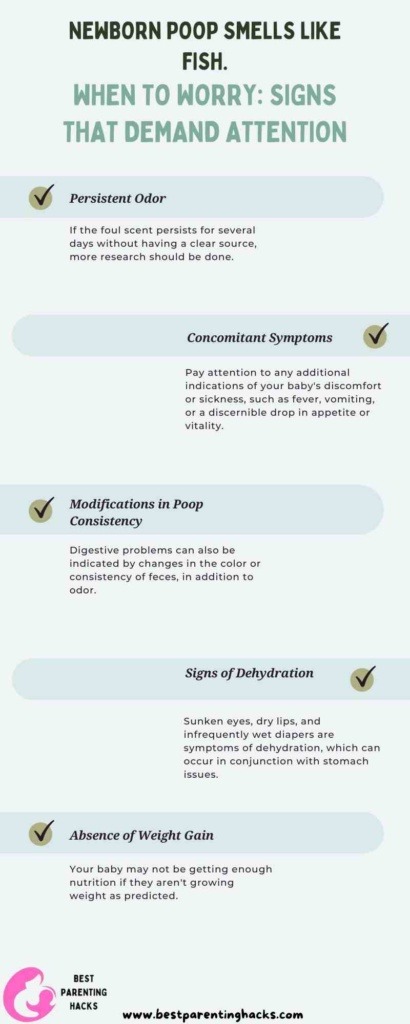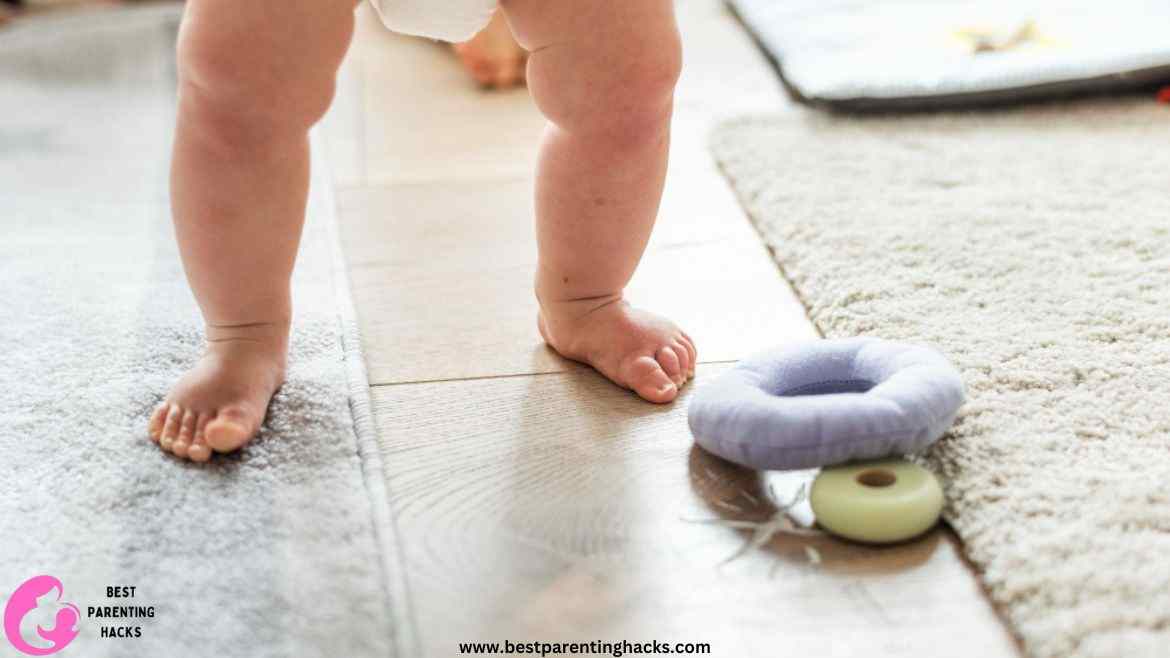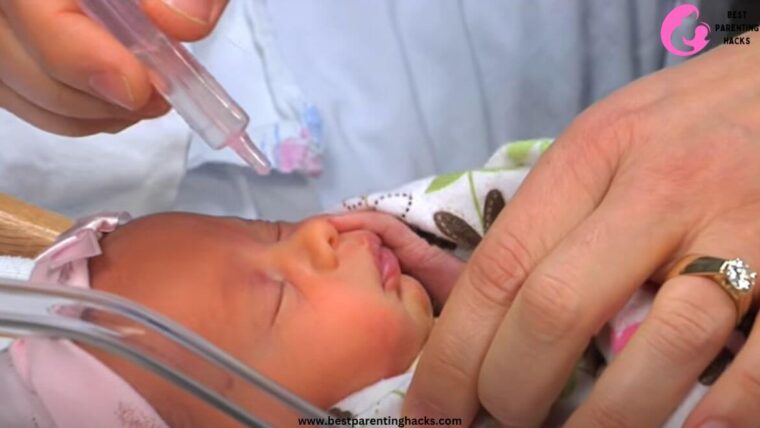Table of Contents
Every tiny detail about your newborn can seem both interesting and, at times, worrisome when you’re a new parent. The scent of their infant’s excrement is one thing that frequently takes parents off guard. While it’s common knowledge that changing a newborn’s diapers will occur frequently, few people anticipate smelling something odd, especially when it smells like fish. Knowing the subtle differences between normal and abnormal diaper contents can be comforting for any parent navigating the early childcare years.
It may seem strange at first why baby poop smells like fish, but there are good reasons for being concerned about this. Generally speaking, there are a few typical sources of the characteristic fishy smell, which can range from the mother’s diet (for breastfed newborns) to mild digestive problems. It’s crucial to remember that although the scent of fish could be unexpected, it usually doesn’t indicate that you should get alarmed right away. However, knowing what may be causing this behavior can help you deal with it more skillfully and determine when it would be appropriate to see a physician.

When to Worry: Signs That Demand Attention
Even while a fishy smell in your baby’s diaper isn’t always a bad thing, there are several indications that you should be concerned about. You can tell when seeking medical guidance is necessary and when making a simple dietary modification is sufficient by keeping an eye out for these indicators.
1. Persistent Odor: If the foul scent persists for several days without having a clear source, more research should be done.
2. Concomitant Symptoms: Pay attention to any additional indications of your baby’s discomfort or sickness, such as fever, vomiting, or a discernible drop in appetite or vitality.
3. Modifications in Poop Consistency: Digestive problems can also be indicated by changes in the color or consistency of feces, in addition to odor.
4. Signs of Dehydration: Sunken eyes, dry lips, and infrequently wet diapers are symptoms of dehydration, which can occur in conjunction with stomach issues.
5. Absence of Weight Gain: Your baby may not be getting enough nutrition if they aren’t growing weight as predicted.
You Might Also Like to Read: How to Make Baby Clothes Smell Good?
Understanding Why Newborn Poop Smells Like Fish
A newborn’s digestive system is still growing, so it might respond differently to different stimuli. The makeup and odor of a breastfed baby’s excrement are directly influenced by the mother’s diet. Strong-smelling foods or foods high in certain proteins can modify the aroma of breast milk, which can change the diaper odor for your infant. Depending on the ingredients of the formula, newborns fed formula may react differently in their digestive tracts, sometimes giving off a fishy scent.
1. Dietary Influences: Whether its breast milk is impacted by the mother’s diet or the type of formula being used, the baby’s food has the most direct bearing on variations in feces odor. Sulfur-rich foods, such as seafood, and some vegetables, can give off a fishy scent.
2. Digestion-Related Flora: The composition of bacteria in an infant’s stomach is essential for proper digestion. Unusual scents may indicate an imbalance, potentially brought on by antibiotics or other circumstances.
3. Minor Infections: A minor gastrointestinal infection may occasionally be indicated by a fishy smell. These illnesses might cause strange smells and interfere with regular digestion.
4. Metabolic diseases: A newborn may occasionally have a particular stench coming from their excrement due to specific metabolic diseases. These illnesses have an impact on how the body uses specific nutrients.
You Might Also Like to Read: What to Do if Baby Poops on Plane?

Expert Insights: Medical Perspective
Concerned about your baby’s health? Speaking with a pediatrician might help you feel clearer and more at ease. Medical professionals know to offer insights using a patient’s background symptoms and even diagnostic assessments.
1. Dietary Review: To determine whether a straightforward adjustment could fix the problem, a physician may first investigate dietary causes for babies who are breastfed or formula-fed.
2. Gut Flora Assessment: To ascertain whether rebalancing the baby’s gut flora is necessary, they may talk about the infant’s recent medical history, particularly any antibiotic treatment.
3. Infection Screening: If an infection is detected, more testing may be suggested to determine the cause and the best course of action.
4. Metabolic Testing: Metabolic testing can rule out or confirm any underlying illnesses in cases of persistent, unexplained symptoms.
5. Nutritional Guidance: To promote healthy digestion and nutrition absorption, a pediatrician can provide recommendations on dietary changes or supplements.

Home Care and When to See a Doctor
Fishy-smelling feces is usually something that may be resolved with little changes made at home. Knowing whether these precautions are insufficient, however, is critical for the health of your infant.
1. Dietary Adjustments: Changing your diet to get rid of any allergens can be a good place to start for nursing moms. It might be beneficial to try a different formula type for babies who are fed formula.
2. Hydration: It’s critical to make sure your infant is getting enough water, particularly if they’re having any digestive problems.
3. Probiotics: Adding probiotics can help balance the bacteria in your gut with the advice of your physician.
4. Observation: Make a thorough journal of your infant’s symptoms, nutrition, and any adjustments you see. Healthcare professionals may find this material to be quite helpful.
Personal Experience and Observations
Giving other parents who are experiencing similar worries some consolation and meaningful advice might come from sharing your own experience of handling strange feces odors in their infant. Talking about how you handled dietary adjustments, got medical advice, and kept an eye on your baby’s health might offer helpful suggestions and motivation.

Conclusion
Write a summary of the article’s main ideas, highlighting the value of home care techniques, observation, and knowing when to seek medical counsel. Assure readers that although the smell of fish in a newborn’s excrement might be unsettling, it is frequently treatable with the correct care and assistance from medical specialists.
FAQs
1. Is it common for my newborn’s feces to occasionally smell fishy?
Feces odor variations can occur periodically and are often related to food changes. On the other hand, persistent fishy smells need to be watched and maybe discussed with a physician.
2. Is it possible for my diet to change how my breastfed baby poop smells?
A nursing mother’s diet can have an impact on how her baby’s feces smell. Strong-smelling foods or foods high in certain proteins are frequently to blame.
3. What should I do if my baby always smells like fish when they poop?
Examine dietary effects first, and make sure you’re properly hydrated. See a pediatrician to rule out any underlying problems if the scent continues.
4. Are there any natural cures for fishy-smelling poop in babies?
Two important at-home tactics are dietary modifications and making sure you drink enough water. Probiotics may also be beneficial, but usage needs to be supervised by a pediatrician.
5. When should I be worried about my newborn’s poop’s color and smell?
Unusual smells that don’t go away, especially if they’re accompanied by color or consistency changes or your baby exhibits distressed behaviors, should be taken to the pediatrician.




